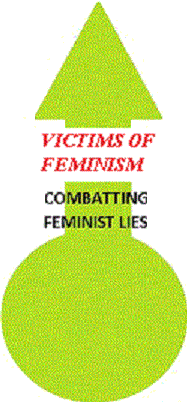Home > Issues > Fake News > Public Interest and Public Ignorance |
||||||||||

|
Empowering Men:fighting feminist lies |
|||||||||
Public Interest and Public Ignorance© Peter Zohrab 2005 |
||||||||||
Home > Issues > Fake News > Public Interest and Public Ignorance |
||||||||||

|
Empowering Men:fighting feminist lies |
|||||||||
Public Interest and Public Ignorance© Peter Zohrab 2005 |
||||||||||
"Every broadcaster is responsible for maintaining in its programmes and their presentation, standards which are consistent with --
...
(d) The principle that when controversial issues of public importance are discussed, reasonable efforts are made, or reasonable opportunities are given, to present significant points of view either in the same programme or in other programmes within the period of current interest."
| |
|||||||||
|
|||||||||
Top |